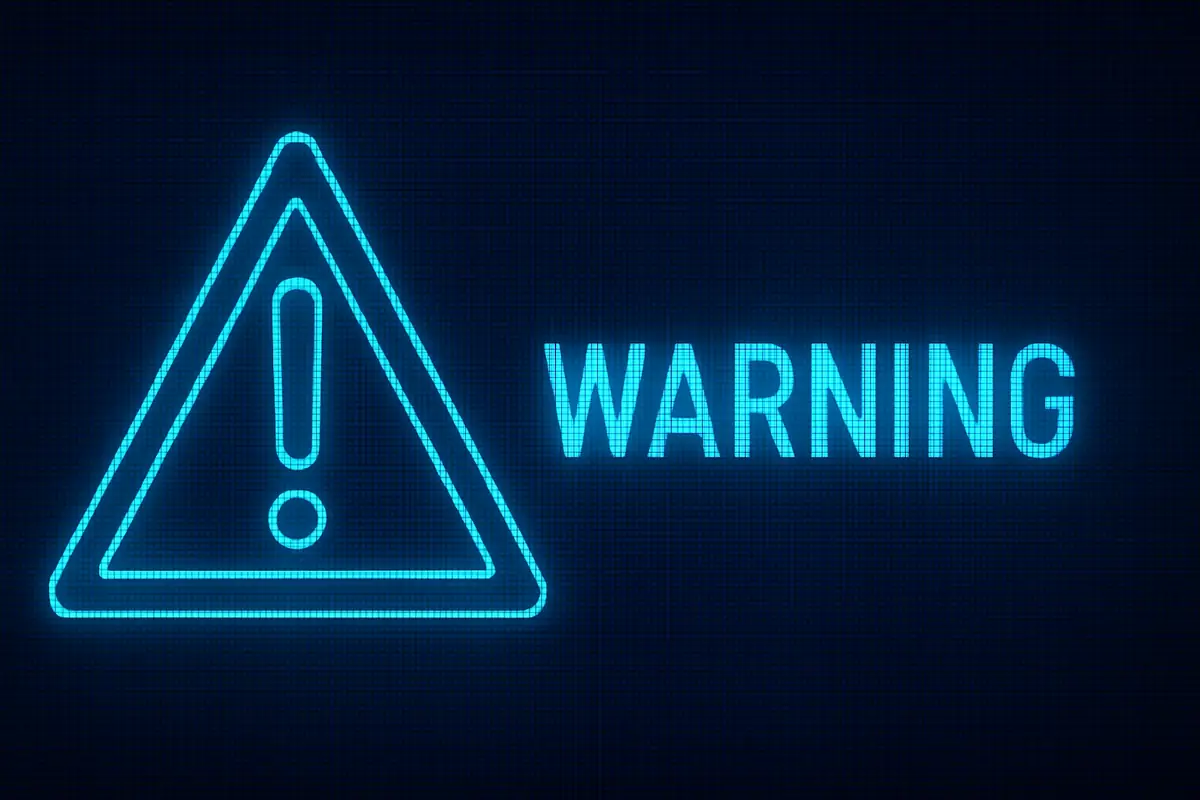We’ve recently received an email that appeared to be from MetaMask. It was titled “Action Required: Verify Suspicious Login to Your Account!” and looked like this:

At first glance, this email might look frightening. The urgency it creates (implying someone is stealing your crypto) could cause someone to panic and quickly verify the email to prevent any harm. This is exactly what the scammers are counting on. However, if you receive anything similar, pause for a moment and check the following points.
Who is this email from?
The sender’s display name is “MetaMask Threat Alert,” which sounds serious. However, always remember to verify the actual email address. In our case, the display name turned out to be random symbols, and the domain was “secure-wallets.com,” which doesn’t look legitimate.
How do you verify the domain of the email sender? Look at the part after the “@” symbol. Here’s what to consider:
- Contact@auriccrypto.com is an email from our own domain – it’s legitimate.
- Auriccrypto@somecontactmail.com would not be legitimate. Even if it has our name, the domain is different.
- Contact@auricrypto.com has a misspelled domain name. Watch out for such tricks!
- Contact@auric-crypto.com has extra symbol in domain name.
- Contact@auriccryptosupport.com includes our name in the domain, but the full domain is different.
Where does the link lead to?
Before clicking on any link in an email, hover your cursor over it to see the actual destination. In our case, it was clear that the link had nothing to do with MetaMask:

Obviously, if you have a suspicious email, do not click on any links. Also be aware that some emails try to hide a malicious link under the “Unsubscribe” button at the bottom. Check every link before doing anything.
Check on MetaMask Site
This applies not only to MetaMask – rather than clicking on a link in an email, go directly to the official site and try contacting support to confirm whether the message is legitimate. In the case of MetaMask, even without reaching support, it’s immediately obvious something is wrong. The official site says:
MetaMask will never send you unsolicited emails. MetaMask will not and cannot initiate email correspondence with you.
As we can see, the email we received cannot be legitimate because it clearly contradicts the guidelines on the official page.
It’s also worth mentioning that some websites let you verify messages in other ways. For example, Binance has a tool to confirm whether a sender is actually affiliated with them. You can also set up a special keyword in your account settings that will appear in all official Binance emails.
Just Google It
Scam emails create a sense of urgency, which can make people forget the simplest methods of verification. When you receive a suspicious email or SMS, one of the easiest solutions is a simple Google search. These scams are sent en masse, so it’s very likely someone else has already encountered it and posted about it online.
A quick Google search of our email leads to multiple Reddit threads where users report fake MetaMask emails, along with warnings about other possible scenarios these emails might suggest (like account expiration or adding two-factor authentication). We also learn that if you click the link, scammers often attempt to obtain your wallet’s seed phrase under some pretext.
Always Be Suspicious In Crypto World
There are many scammers in the crypto space because recovering stolen funds is nearly impossible. Therefore, it’s crucial to stay cautious whenever you receive an unexpected message. Always ask yourself: “Am I completely sure this is legitimate?” If you have any doubts, use Google or directly contact the site’s support team. It’s better to be safe than sorry.




